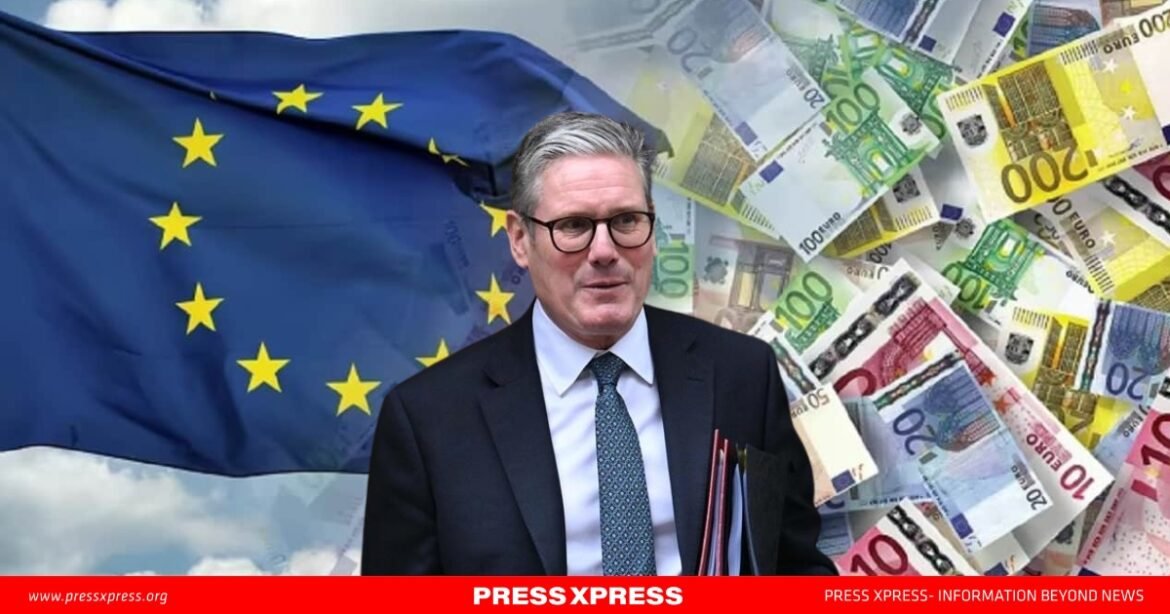The UK is intensifying efforts to gain control over almost €200 billion in frozen Russian assets, currently held in Belgium through the Euroclear system. This push could reshape the geopolitical landscape, especially regarding Ukraine’s financial recovery and Western sanctions on Russia. While some see it as a potential game-changer, others warn of significant legal and diplomatic hurdles.
The Strategic Rationale: Seizing Russian Assets for Ukraine
The UK is advocating for these frozen assets to be moved into a new investment fund, offering greater control and enabling the potential use of these funds to support Ukraine. The strategy aligns with the UK’s broader objective to apply pressure on Russia while strengthening its own role in European diplomacy. If approved, the move could act as leverage in peace talks, as the threat of transferring the assets to Ukraine might encourage Moscow to comply with a ceasefire agreement.
Proponents believe this mechanism could become a stepping stone toward seizing sovereign Russian assets. The idea has received support from countries like France, which sees the possibility of using the funds as a bargaining chip to ensure Russia honors a ceasefire. However, this idea faces significant opposition from major EU powers, particularly Germany and Italy, who are more cautious about escalating tensions with Russia.
Currently, the UK has little control over these assets, which are held under Euroclear, a Belgium-based financial institution. The UK has stated that it holds approximately £25 billion of frozen Russian assets, including both private and sovereign funds. Despite this, the assets are subject to EU rules, meaning the UK’s involvement is limited.
The Legal and Political Challenges
The push to move these assets into a “special purpose vehicle” (SPV) could give the UK more authority over the funds, but it also raises serious legal challenges. Euroclear, being domiciled in Belgium, is governed by EU regulations. Belgium itself would face legal risks if it were to unilaterally seize or redirect these funds. The Belgian government, however, has suggested that pooling the risks with other EU countries, including the UK, could mitigate some of these concerns.
Belgium’s exposure to potential fallout is significant. Belgian officials have expressed concerns that Hungary—an EU member state with pro-Russian sympathies—could use its veto to block the renewal of sanctions at the end of July. If Hungary exercises this veto, the frozen assets could potentially be released back to Russia. Transferring these funds into an SPV would provide a safeguard against such an outcome, though it remains uncertain whether this plan would hold up legally.
The Economic Argument: Maximizing Returns for Ukraine
Another compelling reason for the UK’s push is the potential for maximizing returns on these immobilized assets. Under current rules, Euroclear invests the assets with the Belgian central bank, which offers minimal returns. In 2024, the returns from these low-risk investments amounted to €4 billion, which was used to help fund a €45 billion G7 loan to Ukraine.

However, many argue that these returns are not enough to support Ukraine’s long-term economic needs. Proponents of the new structure argue that by transferring the funds to a higher-risk investment vehicle, the UK and its allies could generate much higher returns, which could be allocated to Ukraine’s recovery. Given the current pace of peace talks and the immense costs of the war, unlocking the full potential of these frozen assets is seen as a way to support Ukraine beyond the G7 loan.
The Broader Implications for EU-Russia Relations
The UK’s initiative highlights the growing division within the EU over how to handle Russian assets and the broader strategy for dealing with the war in Ukraine. Countries like Germany and Italy, wary of antagonizing Russia further, are reluctant to endorse the UK’s proposal for outright asset seizure. These nations have expressed concerns about the potential legal and economic fallout, fearing it could set a dangerous precedent for international financial relations.
Additionally, the move to seize sovereign assets raises ethical questions about the sanctity of state-owned resources. Critics argue that seizing assets from a sovereign nation, even one that is engaged in aggressive warfare, could undermine trust in international financial systems.
The UK’s push for control over the €200 billion in frozen Russian assets presents both a strategic opportunity and a complex legal challenge. While the proposal could provide crucial financial support for Ukraine, its success hinges on overcoming significant diplomatic and legal hurdles within the EU. As peace talks continue and the war drags on, the fate of these assets remains a key point of contention in the broader geopolitical struggle, with significant implications for European unity and international law.


